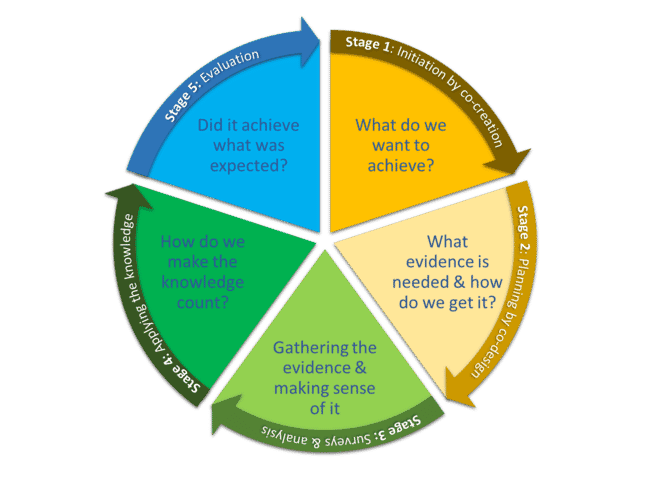The study, Guidelines for Industry-Science Data Collection, was undertaken to address the increasing need for a strategic approach to industry-science data collections in the face of reducing resources and growing need for evidence in fisheries management.
Published in the journal Fish and Fisheries and written by a cross-sector group of science and fishing industry bodies, the study evaluated progress in the development of plans and procedures that can be employed to collect, record and use fishing industry knowledge and data in the evidence base for managing fisheries.

Dr Stephen Mangi from Cefas, lead author of the paper, says: “This study adds to the growing efforts in the mainstreaming of fishing industry generated data for use in science evidence to support decision-making. Delivering industry-science data collection programmes that can generate scientifically robust evidence, requires scientists to provide tools and training, and empowering fishermen to collect relevant data.
“This study is rigorous and includes a review of industry-led data initiatives already undertaken or ongoing within the UK; canvasses stakeholder opinion on data gaps and whether these could be filled by industry data collection initiatives; establishes what issues might prevent or stimulate industry in collecting data when they have the opportunity; and describes guidance on a step-by-step process for gathering scientific information.”
Dr Steven Mackinson, chief scientific officer for the Scottish Pelagic Fishermen’s Association, and one of the report authors, says: “Collaborative fishing industry/science data collection partnerships are becoming more commonplace.
“This is undoubtedly a welcome development, but there does need to be a more strategic approach to ensure the data collected is fit-for-purpose and aimed at areas where there are real shortfalls in information or where improvements can be made.”
“Areas that need to be addressed include securing adequate funding for such data collection initiatives, overcoming technical and capacity barriers, and ensuring a long-term commitment for industry-science partnerships.
“From our research, we believe that current data shortages can be overcome, provided that fishers are given the right support in terms of proper training, scientific back-up and funding.”

